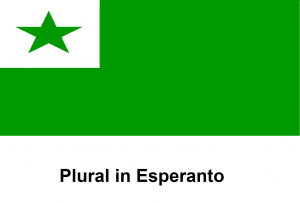Difference between revisions of "Language/Esperanto/Grammar/Plural"
Jump to navigation
Jump to search
(Plural in Esperanto) |
m (Quick edit) |
||
| Line 115: | Line 115: | ||
== '''Video lesson''' == | == '''Video lesson''' == | ||
<youtube>VU1OyIW4WNo</youtube> | <youtube>VU1OyIW4WNo</youtube> | ||
==Related Lessons== | |||
* [[Language/Esperanto/Grammar/Future-Tense|Future Tense]] | |||
* [[Language/Esperanto/Grammar/Past-Participle-in-Esperanto|Past Participle in Esperanto]] | |||
* [[Language/Esperanto/Grammar/WORD-BUILDING|WORD BUILDING]] | |||
* [[Language/Esperanto/Grammar/THE-ACCUSATIVE|THE ACCUSATIVE]] | |||
* [[Language/Esperanto/Grammar/Comaratives-and-Superlatives|Comaratives and Superlatives]] | |||
* [[Language/Esperanto/Grammar/Nouns|Nouns]] | |||
* [[Language/Esperanto/Grammar/Past-Tense|Past Tense]] | |||
* [[Language/Esperanto/Grammar/Adverb|Adverb]] | |||
* [[Language/Esperanto/Grammar/Word-Order|Word Order]] | |||
Revision as of 17:01, 26 February 2023
.
Hello everybody,
In today's lesson you will learn some useful vocabulary about ¨PLURAL¨ in Esperanto.
Feel free to edit this page by adding new words and expressions !
Good learning ! :)
.
.
Some examples for Plural in Esperanto
| ENGLISH | PRONUNCIATION
ENGLISH |
ESPERANTO | PRONUNCIATION
BRAZILIAN PORTUGUESE |
BRAZILIAN
PORTUGUESE |
|---|---|---|---|---|
| The house | doh moy | Domoj | do moi | A casa |
| The cat | kah toy | Katoj | ka toi | O gato |
| The dog | Hoon doy | Hundoj | Hun doi | O cachorro |
| The friend | ah mih koy | Amikoj | a mi koi | O amigo |
| easy | fah tsi lah ih | Facilaj | fa tsi lai | fácil |
| african | ah frih kah ih | Afrikaj | a fri kai | africano |
| beautiful | beh lah ih | Belaj | be lai | belo |
| clean | pou rah ih | Puraj | pu rai | limpo |
Esperanto plural
In Esperanto we fom plural by adding "j" at the end of nouns and adjectives as you can see in the following table :
| Singular form | Plural form |
|---|---|
| Domo (house) | Domoj |
| Kato (cat) | katoj |
| Hundo (dog) | Hundoj |
| Amiko (friend) | Amikoj |
| Facila (easy) | Facilaj |
| Afrika (african) | Afrikaj |
| Bela (beautiful) | Belaj |
| Pura (clean) | Puraj |
